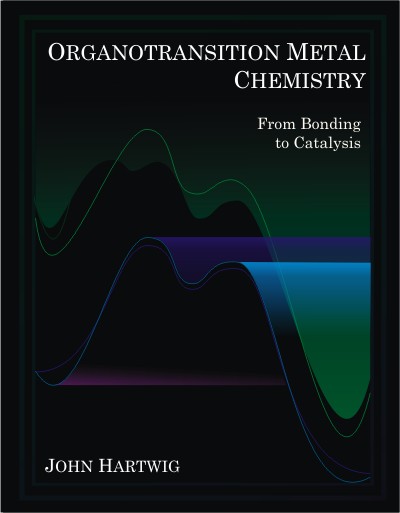
Organotransition Metal Chemistry: From Bonding to Catalysis
Organotransition Metal Chemistry – From Bonding to Catalysis provides a selective, but thorough and authoritative coverage of the fundamentals of organometallic chemistry, the elementary reactions of these complexes, and many catalytic processes occurring through organometallic intermediates.
Summary
Organotransition Metal Chemistry – From Bonding to Catalysis provides a selective, but thorough and authoritative coverage of the fundamentals of organometallic chemistry, the elementary reactions of these complexes, and many catalytic processes occurring through organometallic intermediates. Built upon the foundation established by the classic text by Collman, Hegedus, Norton and Finke, this text consists of new or thoroughly updated and restructured chapters and provides an in-depth view into mechanism, reaction scope, and applications.
The early chapters describe the principles of bonding and the classes of ligands that characterize organotransition metal chemistry. The remainder of the book focuses on the reactions of organometallic complexes. The second portion of the book describes the classic stoichiometric organometallic reactions, including ligand substitution, oxidative addition, reductive elimination, migratory insertions, eliminations, electrophilic attack on coordinated ligands, nucleophilic attack on coordinated ligands, and chemistry of metal-ligand multiple bonds. The third portion of the text describes the principles of catalysis and the classic catalytic processes of organometallic systems. Written by a teacher and experienced practitioner of the field, the book’s content is simultaneously accessible to students with no background in the subject matter and invaluable to synthetic organic chemists, inorganic chemists, and even experts in the field.
Translated into Japanese.
Resources
Table of Contents
Chapter 1
Structure and Bonding
Chapter 2
Dative Ligands
Chapter 3
Covalent Ligands Bound Through Metal-Carbon and Metal-Hydride Bonds
Chapter 4
Covalent Ligands Bound Through Metal-Heteroatom Bonds
Chapter 5
Ligand Substitution Reactions
Chapter 6
Oxidative Addition of Non-Polar Reagents
Chapter 7
Oxidative Addition of Polar Reagents
Chapter 8
Reductive Elimination
Chapter 9
Migratory Insertion
Chapter 10
Elimination Reactions
Chapter 11
Nucleophilic Attack on Coordinated Ligands
Chapter 12
Electrophilic Attack on Coordinated Ligands
Chapter 13
Metal-Ligand Multiple Bonds
Chapter 14
Principles of Catalysis
Chapter 15
Homogenous Hydrogenation
Chapter 16
Hydrofunctionalization and Oxidative Functionalization of Olefins
Chapter 17
Catalytic Carbonylation
Chapter 18
Catalytic C-H Functionalization
Chapter 19
Cross Coupling
Chapter 20
Allylic Substitution
Chapter 21
Catalytic Metathesis of Olefins and Alkynes
Chapter 22
Olefin Polymerization
Reviews
“Educating students thoroughly in organometallic chemistry is difficult…For the most part, I tell my students
to get Hartwig’s book and learn as they go.”
-Jennifer Schomaker, Organometallics Roundtable, Organometallics
“With great coverage of all aspects of the field, Hartwig’s Organotransition Metal Chemistry: From Bonding to Catalysis is the new must-have text that very soon will be recognized far and wide as a true chemistry classic.”
-Harry B. Gray, California Institute of Technology
“This outstanding book provides comprehensive coverage of modern topics in organometallic chemistry. It is a treasure trove of information that will prove invaluable for both students and practitioners of the field.”
-Melanie Sanford, University of Michigan
“The most notable applications of organometallic chemistry in the past two decades have been characterized by the use of fundamental aspects of structure, bonding and reactivity. To anyone who wants to engage in this line of research, this text will serve as the single best source for all the essential information.”
-T.V. RajanBabu, The Ohio State University
“A very useful reference work.”
-Martin Semmelhack, Princeton University
“This long-awaited text does a fine job of covering the most important developments in organotransition metal chemistry over the last 20 years, while retaining the earlier versions’ effective presentations of basic concepts and older work. It should well serve both teachers choosing a textbook for an advanced course and active researchers looking for a good starting reference source.”
-Jay A. Labinger, California Institute of Technology

